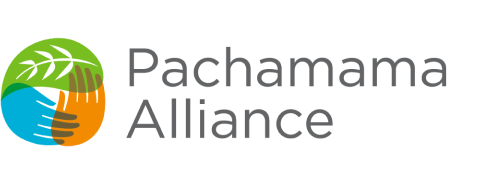
Money is a resource that many of us view as a necessity; it has become a measure of wealth, the ability to acquire resources, and an individual’s capacity to meet their needs. Though the value of money has become a pervasive part of our social and economic systems, Pachamama Alliance co-founder, Lynne Twist reminds us that we ultimately decide what value money has in our lives, for we are the entities that created money in the first place; it is not a natural resource or rule that we have no control over.
While money has very practical uses, there is a need to reevaluate our personal perceptions and connections to money, so that it may be so useful as to create as much good in the world as it can. Changing our relationship to money is one of the keys to unlocking the potential for it to help change our collective dream and create the more sustainable future we know is possible.
Scarcity System
Our current financial systems are driven by the idea of scarcity. Pachamama Alliance co-founder, Lynne Twist, and author of Sacred Economics, Charles Eisenstein, agree that an economic system based on scarcity perpetuates a social system of greed. When we believe that necessary resources, such as food, are scarce, we tend to instinctively keep such resources to ourselves to benefit our personal survival, regarding it with higher value than something that is in abundance.
Money is one such resource that is highly valued due to its perceived scarcity. Our financial structures create situations that make money hard to come by, it is something that has to be earned and thus holds a certain value that currently gives those who have acquired more of it a type of wealth and social importance. Economic competition is promoted based on the notion that money is a scarce necessity to fulfilling our personal goals.
So, when we believe that money dictates how well our lives will play out, we then devote a lot of time and energy into how we can acquire more. We connect our monetary wealth to our exerted efforts to acquire it and feel a personal connection to it, feeling a sense of right to use our money in whichever ways we personally deem fitting, usually to counter the stresses we encounter while obtaining it.
Money is a great example of a resource that is given value through scarcity, but it is not the only one. Food is another resource that is being capitalized on because of its inherent necessity to feed and nourish our bodies. While we often hear a great deal about people going hungry and campaigns to “end world hunger”, we don't always hear that there is actually enough food being produced to feed every single living person today. However, if everyone’s need for nourishment was met, food would be less valued and our economic systems would not rely on the billions of monetary income that food brings.
Like money, food is not actually a scarce resource, it is abundant and can meet the needs of the entire human population. Collectively, farms produce enough crop and grain to meet the demands of at least 9 billion people, but in order to capitalize on foods’ value, it is unfairly allocated to wealthier nations that can afford to provide more to its respective populations. Furthermore, between 70 - 80% of all crop and grains are used to feed cattle and other livestock, essentially putting the demands of people who can afford to eat meat over those who are starving.
Putting Abundance to Use
In order to meet the needs of the world, we all need to change our personal relationships to resources, especially money. We must remember that we assign a value to money that is dependent on how we relate to it. Only when we release the idea of money being the determinant factor to our happiness and quality of life, can we let go of some of our money and energy to fulfill the happiness and quality of other peoples’ lives.
A good number of us in wealthier nations face very little difficulty meeting our most basic needs and actually have more than is necessary to happily survive. Just imagine how many people's basic needs we could meet with the excess wealth and resources.
While there are enough resources and money to go around and do good, that potential cannot be unlocked until folks are actually moved to do good work. This task of unleashing money’s full potential is difficult to do alone, and in most cases requires the work and collaboration of whole societies to allocate it to where it is most needed and can be most beneficial. We can all start by investing in the world we wish to have, using our personal resources to promote and help people, causes, or organizations that have the ability to turn it into good and create the more fulfilling world we know is possible.
